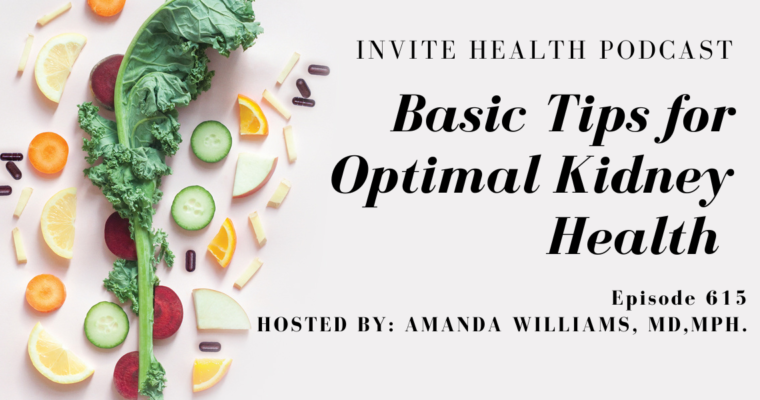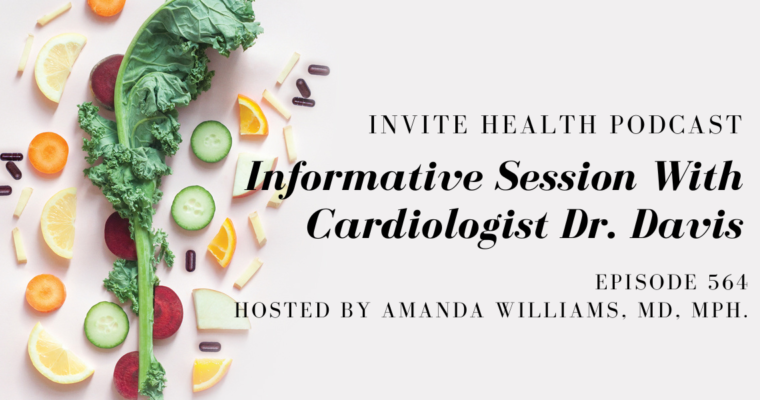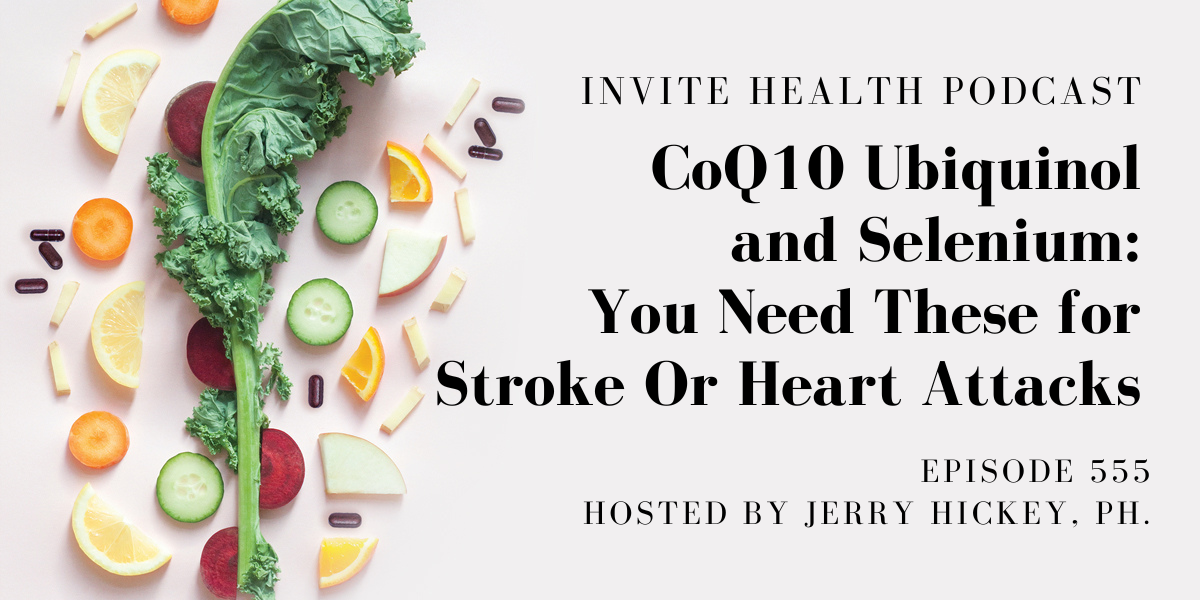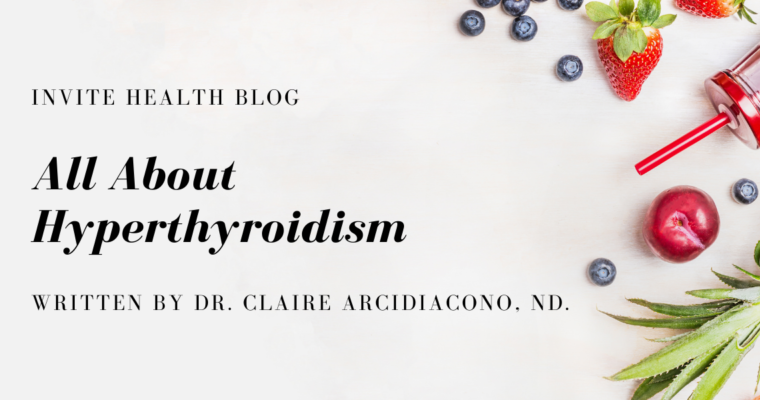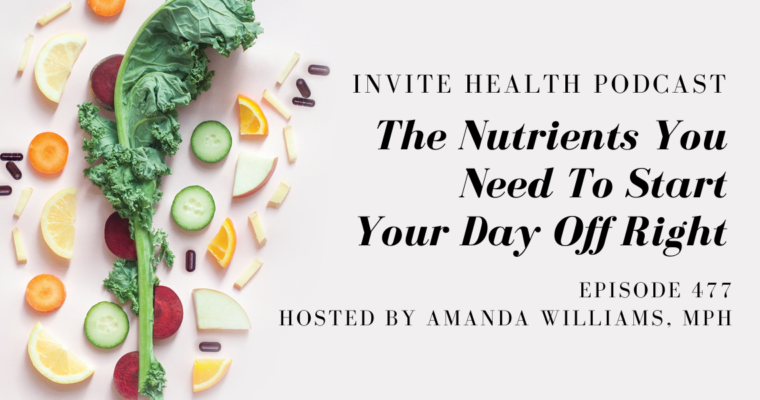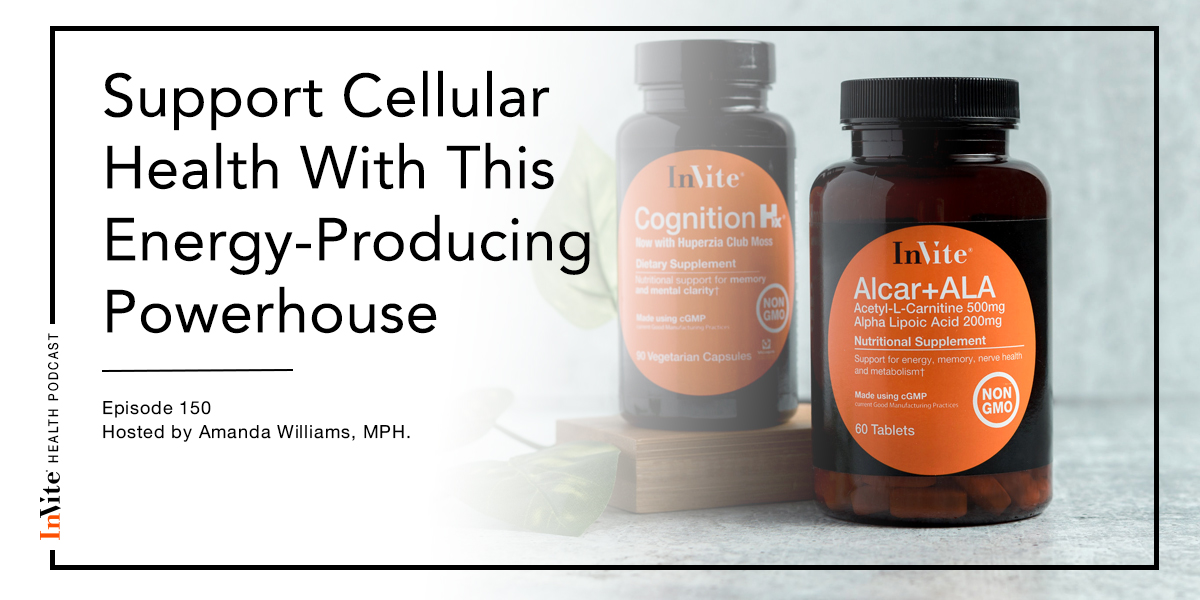heart attacks
Subscribe Today!
Please see below for a complete transcript of this episode.
CoQ10 Ubiquinol and Selenium: You Need These for Stroke Or Heart Attacks – InViteⓇ Health Podcast Episode 555
Hosted by Jerry Hickey, Ph.
*Intro music*
InViteⓇ Health Podcast Intro: Welcome to the InViteⓇ Health Podcast, where our degreed healthcare professionals are excited to offer you the most important health and wellness information you need to make informed choices about your health. You can learn more about the products discussed in each of these episodes and all that InViteⓇ Health has to offer at www.invitehealth.com/podcast. First time customers can use promo code PODCAST at checkout for an additional 15% off your first purchase. Let’s get started!†
*Intro music*
Jerry Hickey, Ph.: [00:00:40] Coenzyme Q10 is an extremely well known supplement, and it’s really very safe and it’s incredibly beneficial. It was first discovered in Japan at the turn of the 20th century, and the research has been mounting ever since. A great deal of research comes from Texas, where a lot of the work was performed. In fact, the CoQ10 we use, the active form Ubiquinol actually comes from Texas and it’s been found to be core to metabolism. It’s at the core of producing energy from all foods, fats, carbohydrates, proteins. It affects our ability to create energy. Now for coenzyme Q10 to have this effect and of course, that’s natural to the human body. It has to be converted into a different form in your body. So the CoQ10 that most people buy in a health food store or pharmacy has to be changed before it works, before it benefits you. This active form is called Ubiquinol. Now there’s very strong evidence that it truly helps protect you if you suffered previously with a heart attack or a stroke, or if you suffer with heart failure. It’s the Ubiquinol form that will offer the best level of protection. And here’s the issue. Many people fail to adequately convert classical CoQ10 supplements to Ubiquinol, so they would be far better off if they switched to a Ubiquinol supplement.† [00:02:23]
[00:02:25] So welcome to my episode. Take the supplement if you’ve had a stroke or a heart attack. Hi, my name is Jerry Hickey, I’m a nutritional pharmacist, I’m a licensed pharmacist. I’ve been doing this for many decades. Welcome to the episode. You can find all of our episodes for free wherever you listen to podcasts or just go to invitehealth.com/podcast we have hundreds and hundreds of InViteⓇ has hundreds and hundreds of episodes. You can also find us on Instagram, Twitter and Facebook at InViteⓇ Health and of course, please subscribe and leave us a review.† [00:03:00]
YOUR CARDIOLOGIST NEEDS TO KNOW THIS SUPPLEMENT – INVITE HEALTH PODCAST, EPISODE 524 >> Listen Now!
[00:03:02] Now there’s different forms of stroke. The most common stroke is an ischemic stroke where something blocked the flow of blood in the brain and parts of the brain can die and are supplements that have some utility in helping lower the risk of a stroke. The biggest cause of a stroke is high blood pressure. The second leading cause is an arrhythmia of the heart. An arrhythmia means improper beating pattern. The heart has to be it has to have a dependable, normal beating pattern. But in atrial fibrillation, second most common cause of a stroke, the top chambers of the heart are fluttering. And there’s all kinds of crazy patterns skip beats, triple beats, etc. The heart’s racing, and what happens are little red blood cells get left behind and clotting factors can adhere to them. And eventually they shoot out of the heart, can go into the brain and cause a stroke. So after a stroke, Ubiquinol really becomes quite important. This is the Journal of Molecular Neuroscience. Neuroscience, of course, is the brain is a number of studies of Ubiquinol with the brain in children and adults, neuromuscular studies, brain studies.† [00:04:21]
[00:04:21] So this is a large group of stroke patients. And what they did within less than 24 hours, they measured the level of two nutrients in their blood. SOD which stands for superoxide dismutase a major antioxidant enzyme that defends your brain. SOD levels tend to crash and burn after the age of 55. They’re pretty much very low in everybody after the age of 65 and Ubiquinol, which also drops in your heart, your brain and your muscles, etc., with age. So these are two major protective factors. So they found in people who suffered a stroke when they measured within the first 24 hours there was a really big drop in SOD and a really big drop in the level of Ubiquinol. And they found a correlation over time between the level of damage from the stroke and a drop in these two nutrients. And they also found a correlation between reduced mental function after a stroke like six months later and the catastrophic drop in SOD and Ubiquinol.† [00:05:22]
[00:05:26] Now the left side of your heart pumps out oxygen, rich blood to the body. To do this, it passes through a valve leading to the biggest blood vessel in the body, the abdominal aortic artery. The valve is called the aortic valve, so blood is pumped from the left, lower chamber, the heart. It goes through this valve aortic valve and enters the aorta, which brings in blood all over the body. So you get oxygen and nutrition. So the valve allows blood to be pumped out of the heart, but prevents backflow of the blood it prevents the blood from reentering the heart inappropriately.† [00:06:05]
[00:06:08] There’s a condition called aortic stenosis. The valve is narrowed and has different levels and symptoms when you truly have some level of aortic stenosis. You can have severe fatigue and tiredness after exertion, shortness of breath, chest pain. Other things can happen like arrhythmias, so it can lead to strokes, arrhythmias, heart failure. The age of patients with aortic stenosis is rising. People are living longer. And unfortunately, this compromises things like the level of benefit from the surgery is reduced. There’s more complications in these people. There’s poorer outcomes. There’s reduced heart performance. So there was an Italian study published in the journal Aging. The Journal Aging is published up in Albany, New York, and 50 elderly patients with severe aortic stenosis. They were going to undergo surgery for aortic valve replacement. They gave them Ubiquinol or placebo, Ubiquinol prevented an increase and troponin one after the surgery. That’s really important, troponin one is found inside the cells of the heart and wonder damaged it leaks out of the heart. So there’s a rise in troponin one that signifies the amount of damage to the heart. There’s a correlation there. In fact, after a heart attack or a suspected heart attack, doctors will check the blood for Troponin one. And if they see it’s elevated, they know that the person had a heart attack. So the Ubiquinol prevented an increase in troponin one, meaning that it was preventing damage to the heart cells of the heart muscle. The heart was stronger after the surgery on Ubiquinol with improved health versus no Ubiquinol. So the strength of the heart was improved and the risk of suffering with congestive heart failure or an arrhythmia, you know, an improper beating pattern which can lead to a stroke or stiffening of the heart, fibrosis of the heart. The risk of all of these was decreased and so was inflammation in the heart. So it’s all very good.† [00:08:29]

[00:08:30] But let’s look at heart attacks. Heart attacks typically occur when something blocks the flow of blood in the heart and part of the heart muscle dies. And one of the outcomes of a heart attack, besides arrhythmias, is heart failure, where the heart stiffens and enlarges and it becomes increasingly hard for the heart to pump blood. So this is the Journal of Cardiovascular Antiracist Research, and the researchers looked at quality of life and 128 patients after they suffered with a true heart attack, not a minor heart attack, a real heart attack. Now, they were on the best drugs that medicine has to offer, like beta blockers and ACE inhibitors and ARBs, aldosterone blocking drugs like tryptamine. The lucky patients were placed on a better diet and the researchers focused on raising their plasma levels of Ubiquinol and L-carnitine through supplementation. So Ubiquinol allows you to create energy in the heart and in your muscles and in all of your organs and tissues throughout your body, carnitine is similar. Carnitine feeds your cells of your heart, in your brain, etc., with the precursor for creating energy out of food. So they’re both very important after a heart attack. Ubiquinol and L-carnitine. Now through the supplementation compared to the other groups, because some of them were not placed on diet, some of them were not placed on the supplements compared to the other groups supplementation increased the quality of life. They had a lot more energy, they had an improved mood, their emotions improved, but their prognosis also improved. The doctor said, Hey, you’re going to do a lot better with the better diet and Ubiquinol and the carnitine than if you didn’t have these supplements and a better diet.† [00:10:30]
[00:10:31] Now, this one is really telling heart failure is very scary. They classify heart failure, according to the New York Heart Association classification stage one. Hey, you don’t even know you have heart failure. Stage two. You probably have a little trouble breathing and you’re probably fatigued after exercise or physical activity. Stage three Heart failure. You’re experiencing the symptoms just sitting in a chair and you’re just sitting on the couch watching TV and it’s hard to breathe and you’re fatigued. Stage four is really scary. Stage four Heart failure is more scary than HIV because people with HIV infections are now put on a cocktail of drugs that keeps them alive. Stage four Heart failure is as scary as advanced cancer, and it has a very poor prognosis and a short time. I mean, it’s just not it’s just not a good thing. So all of the patients, it’s a Danish front study, 420 patients with severe heart failure. So the New York Heart Association classification was stage three or four. So it’s not good. And they were already on the best medications, like the beta blockers, like the ARBs, like ACE inhibitors. They were supplemented to increase the Ubiquinol levels or given placebo.† [00:11:47]
[00:11:49] Here’s the results they were they were amazing. It was over a two year period for people with class three and class four heart failure two years is a very long time. A 43. With the Ubiquinol 43% reduction in cardiovascular related deaths. In other words, a death from a heart attack or an arrhythmia like ventricular tachycardia where the lower left chambers racing or sudden cardiac death. So a 43% reduction in dying, a 42% reduced risk of dying from all cause mortality. So that could be anything including infections. Because don’t forget, these people, their immune system compromised it’s not working well so it’s easy for them to get infections, even heart infections. The nt probnp significantly improved now that’s important. Nt probnp is a protein found in the cells of the heart and cardio cardiologists. An interventional cardiologist will look at the level of nt probnp in the blood to see how damaged the heart is, where if their medication is improving this patient’s health. So when you have a heart attack and heart failure, nt probnp is leaking out of heart and the level in the blood rises. They found a level of nt probnp significantly improved, significantly dropped. And I have to tell you, this other study showing this where they gave older people Ubiquinol versus regular CoQ10 versus placebo and only the Ubiquinol improved nt probnp in older people. Hospitalizations were greatly reduced. The need for a heart transplant was greatly reduced. The need for being put on a mechanical pump to help the heart work was greatly reduced. So there’s a lot going on here.† [00:13:34]
WHY COENZYME Q10 UBIQUINOL IS SO IMPORTANT – INVITE HEALTH PODCAST, EPISODE 233 >> Listen Now!
[00:13:36] So in the American Journal of Cardiovascular Drugs, this is a Japanese study. Patients with stable heart failure. Stable heart failure is safer than unstable heart failure, obviously, but they had a reduced ejection fraction. So that’s really important. The heart is just not pumping enough blood to meet their needs. So they’re not getting enough oxygen and nutrition to the brain and their organs and system. Not a good thing, fatigue, hard to breathe, I mean, a lot of symptoms here. They were placed on Ubiquinol or placebo, and the Ubiquinol greatly improved the function of their endothelial tissues. Now, that’s really important. Endothelial tissues line your blood vessels like a rug. The cells line your blood vessels like rug shoulder to shoulder, and they pump up in your blood vessels. So this is a reason why they were less likely to wind up in the hospital or have a second heart attack or wind up for heart transplant. It’s over because everything was working better for their circulation.† [00:14:36]
[00:14:39] Now there’s a lot to say about Ubiquinol. I mention a study on my radio program many times that took place in Sweden Linköping University, great research institution, the Karolinska Institute, another great research institution, and they gave elderly people supplements to raise their Ubiquinol level, but also to restore their selenium level. Selenium is a mineral that’s involved with reducing the risk of certain cancers if you utilize it properly, not everybody useful utilizes it properly. It’s also needed for the health of the liver and the eyes and the brain, and also for the health of the heart. So to make everything fair, they had to give everybody selenium because they want see that Ubiquinol make a difference. Everybody was given selenium. Now, Ubiquinol when they gave these very elderly everybody who was over 60 some of these people were in their eighties. When they gave these elderly people the supplements it reduced their risk of dying from heart related events by over 50%, such as a heart attack and arrhythmia, a heart failure, sudden cardiac death, or reduced. Now, they went back and looked at these patients ten years later. So these patients were put on the supplements for five years and then it stopped and they revisited these patients ten years later and 12 years later, they found that there had been long lasting benefits for from restoring the selenium and giving the patients Ubiquinol. 12 years later, they still had a 40% lower risk of dying from something related to the heart, such as a heart attack or a stroke or sudden cardiac cardiac death. I mean, it shows that even for a limited time, if you took Ubiquinol daily for five years, it just turn back the clock on your heart health and your heart remained younger than your chronological health. So if you were 70 and you took ubiquinol when all of a sudden you had a 50 year old heart, 50 year old heart don’t normally have a heart attack. So when you’re 80, you still had a 60 year old heart. It’s kind of like that. I mean, you can’t directly quantify it, qualify it, but the heart was made younger. So I think anybody over the age of like 55 or 60 really should be on kaneka Ubiquinol and I would take 120 milligrams a day would food. But if you have damage to the heart or if you’ve suffered with a stroke or heart attack, you want to take more. So discuss that with your nutritionist or your doctor or pharmacist. But certainly 240 to 400 milligrams a day would have a significant effect on improving your health.† [00:17:13]
[00:17:14] There are other supplements that could be beneficial after a stroke or heart attack. Of course you should discuss all of this what your health care professionals besides Ubiquinol and the brain it could be Alcar, a form of carnitine that gets into the brain and the heart it could be carnitine. B Vitamins are very important to both the brain and the heart. B Vitamins because they allow you to use calories for energy, especially B6, B12, folate and riboflavin. The mineral magnesium can be very helpful. All of these have benefit after a heart attack, but once again, you need guidance on this. So I want to thank you for listening to today’s episode. You can find all of our episodes for free wherever you listen to your podcasts, or just go to invitehealth.com/ podcast. You can also listen InViteⓇ on Twitter and Instagram and Facebook at InViteⓇ Health. And by the way, when you listen to our podcast, if you could leave a a review and if you could subscribe I’ll be very helpful, gives us feedback, reviews. And I want to thank you for listening to today’s episode. And this is Jerry Hickey signing off. Thank you.† [00:17:14]
*Exit Music*


